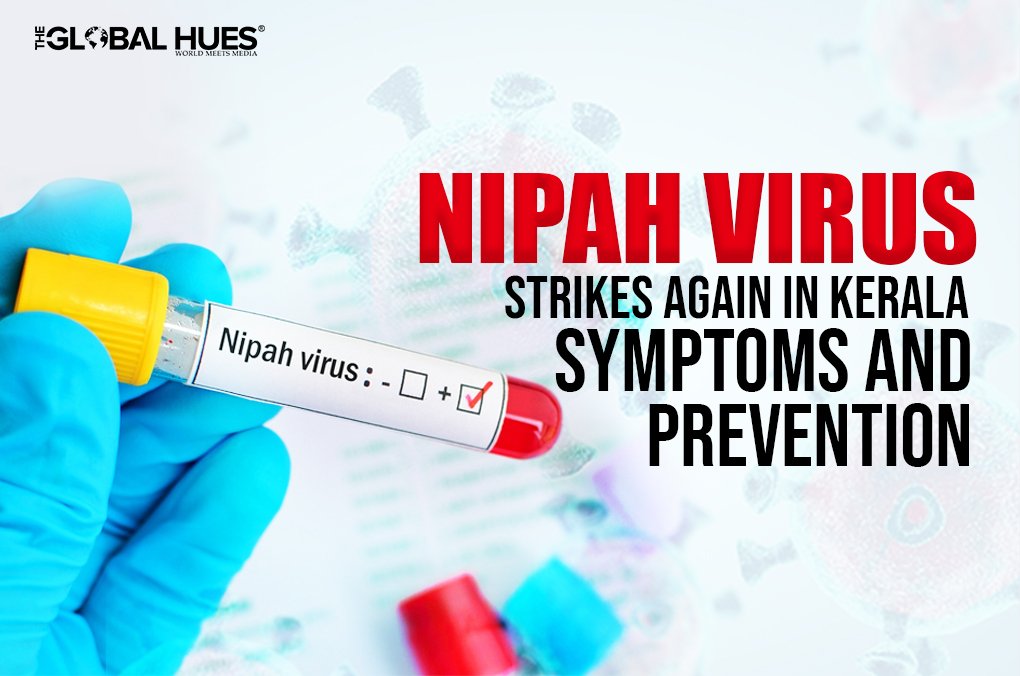In the most recent news, the southern state of Kerala has reported two confirmed deaths due to the Nipah Virus. On Wednesday, the Kerala state government declared seven village panchayats in Kozhikode, Kerala, as containment zones in response to the outbreak. Additionally, the government announced a series of measures and restrictions aimed at curbing the transmission of the virus. This outbreak is the fourth one since 2018.
What is the Nipah virus (NiV)?
According to the World Health Organisation, the Nipah Virus infection is a “zoonotic illness” which is transmitted from pigs and fruit bats to humans. The virus transmits through contaminated food and contact with an infected person.
History Of The Nipah Virus
The virus was first identified in 1998 among pig farmers in Perak, Malaysia. It was then reported in countries including Singapore, Bangladesh, the Philippines, and India. The virus spreads from one person to another through close contact.
NiV is a member of the family Paramyxoviridae, genus Henipavirus. The transmission of this virus starts from infected fruit bats to pigs, and then it spreads to humans through contact with the infected animal or bodily fluids like saliva or urine.
Symptoms of The Nipah Virus
The initial symptoms of the Nipah Virus infection appear as fever and become more critical with time. Other symptoms of the Nipah Virus infection are signs of respiratory illness like cough, sore throat, and difficulty in breathing.
After the initial stage of fever, a phase of brain swelling (encephalitis) follows, and the symptoms here include drowsiness, disorientation, and mental confusion. The last stage of this infection is coma. In 40 to 70 per cent of cases, it may lead to death. The survivors of the Nipah Virus may be affected by convulsions and personality changes.
Other symptoms of the Nipah virus include:
- Diarrhoea
- Vomiting
- Muscle pain and severe weakness
- Slurring speech
- Seizures
- Respiratory distress
Diagnosis and Tests
The healthcare provider reviews your symptoms and travel plans if you have been to places which are affected by the Nipah virus. In the early stages, an RT-PCR test is done by using bodily fluids for the test. The testing may require you to give:
- Nasal or Throat swabs
- Cerebrospinal fluid
- Urine Samples
- Blood Samples
Also Read: Charge Your Day With These Foods That Boost Metabolism
Treatment Of The Nipah Virus
Unfortunately, no antiviral medications can fight this infection, and you can only manage your symptoms. Below are some ways you can manage the symptoms:
- Drink lots of water
- Get proper rest
- Take medicines like Acetaminophen or Ibuprofen
- Use medication to control nausea or vomiting
- If you find it difficult to breathe, use inhalers or nebulisers
- If you experience a seizure, take anti-seizure medicines
Prevention Of The Nipah Virus
Prevention is better than cure. This saying applies here as well. If you live in an area where the Nipah virus appears, below are precautions that you should take:

- Wash your hands frequently
- Avoid any type of contact with sick pigs or bats
- Clean and disinfect your pig farms and quarantine sick pigs
- Avoid going to trees where bats reside
- Avoid eating and drinking things that are contaminated
- Throw away the fruit which the bats have bitten
- Avoid contact with the infected person’s blood, saliva, or bodily fluids
Also Read: What Are The Benefits Of Keeping Your Body Hydrated?
If you are looking after an infected person, you should always wear personal protective equipment (PPE). Examples of the PPE are:
- Full-coverage gowns that can protect you from bodily fluids
- Medical gloves
- Eye protection glasses or goggles
- Medical or surgical masks
Summing Up
The state of Kerala is on high alert as the Nipah virus has returned and claimed two lives already. The infection transmits from pigs and bats to humans. As of now, there are no antiviral medications. You can only take precautions and make sure not to touch any sick animal, especially pigs.




